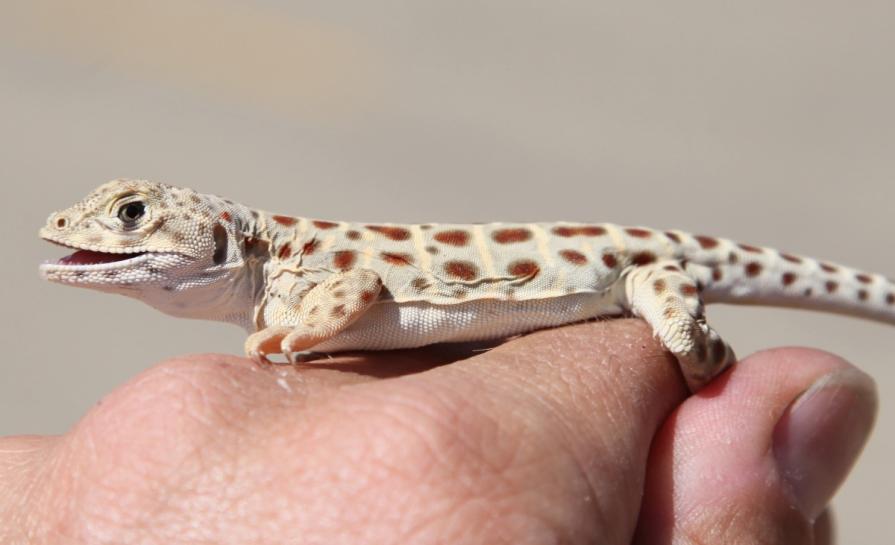
Partnerships
The BLM works with many partners on habitat conservation and restoration. This includes working with state wildlife agencies in implementing their State Wildlife Action Plans (also known as Comprehensive Wildlife Conservation Strategies) in land-use and conservation planning on BLM-managed lands.
Each state’s plan identifies priority wildlife species and habitats, addresses threats to their survival, and identifies long-term conservation actions needed in the state, including those on BLM-managed lands. The strategies provide a solid foundation for furthering wildlife conservation and an opportunity for the states, federal agencies and other conservation partners to address their individual and coordinated roles in conservation efforts.
The BLM participates with other agencies in national strategies concerning urgent wildlife issues, such as White-Nose Syndrome, which is currently spreading among bats.
National Partnerships for Wildlife
The Association of Fish and Wildlife Agencies (AFWA) represents North America’s fish and wildlife agencies and promotes sound management and conservation of fish and wildlife and works to ensure that all fish and wildlife entities work collaboratively on the most important issues.
Bat Conservation International (BCI) is dedicated to the enduring protection of the world’s 1300+ species of bats and their habitats and creating a world in which bats and humans successfully coexist. The mission of BCI is to conserve the world’s bats and their ecosystems to ensure a healthy planet.
Environment for the Americas (EFTA) is a nonprofit organization that provides information and materials about birds, bird conservation, and bird education from Canada to South America. Known for the signature event, International Migratory Bird Day, their programs inspire people of all ages to get outdoors, learn about birds, and take part in their conservation.
Monarch Joint Venture (MJV) is a national partnership of federal and state agencies, private organizations, and academic programs working together to protect monarch butterfly populations and conserve habitats supporting their multi-generational migration.
Mule Deer Foundation (MDF) The purpose of the Mule Deer Foundation is to ensure the conservation of mule deer, black-tailed deer and their habitat.
The National Fish and Wildlife Foundation (NFWF) is a non-profit organization that preserves and restores native wildlife species and habitats. Created by Congress in 1984, NFWF directs public conservation dollars to the most pressing environmental needs and matches those investments with private funds. The Foundation works with individuals, foundations, government agencies, nonprofits, and corporations to identify and fund the nation’s most intractable conservation challenges.
National Wild Turkey Federation (NWTF) is dedicated to the conservation of the wild turkey and the preservation of our hunting heritage.
NatureServe empowers people to sustain biodiversity by making sure everyone has access to the knowledge they need to be better stewards of our shared lands and waters. We serve as an authoritative source of comprehensive, decision-quality biodiversity data.
North American Bird Conservation Initiative is composed of government agencies, private organizations, and bird initiatives helping partners across the continent meet common bird conservation objectives by fostering coordination and collaboration on key issues of concern, including coordinated bird monitoring, conservation design, and land conservation. View bird occurrences in BLM report indicating BLM stewardship responsibility by Birds of Conservation Concern.
North American Pollinator Protection Campaign works to protect the pollinators of the North American Continent (i.e, bees, butterflies). Population declines of pollinators threaten biodiversity, food webs, and human health.
Partners in Amphibian and Reptile Conservation (PARC) is dedicated to the conservation of the reptiles and amphibians and their habitats. Members include state an d federal agencies, conservation organizations, museums, nature centers, zoos and universities.
Partners in Flight (PIF) is a cooperative effort involving partnerships among federal, state, and local government agencies, philanthropic foundations, professional organizations, conservation groups, industry, the academic community, and private individuals. Meetings are open to anyone interested in bird conservation.
Pollinator Partnership promotes the protection and conservation of pollinators, critical to food security and ecosystems, through conservation, education, and research.
The Rocky Mountain Elk Foundation (RMEF) works to ensure the future of elk, other wildlife and their habitat. Founded in 1983, the RMEF has conserved or enhanced habitat on more than 5.9 million acres. The Foundation also works to open or improve public access for hunting, fishing and other recreation. Linda Cardenas is the BLM's Liaison to the RMEF (linda_cardenas@blm.gov).
Watchable Wildlife promotes positive wildlife viewing experiences for residents and visitors in communities throughout Canada, the United States and Mexico. It seeks to help local communities benefit from the economic potential of nature-related recreation while conserving native plants and animals in their natural habitats. To find wildlife viewing areas, go to http://www.wildlifeviewingareas.com/.
Western Association of Fish and Wildlife Agencies (WAFWA) is an organization of 23 public agencies charged with the protection and management of fish and wildlife resources in the western part of the United States and Canada. Their mission is, "Delivering conservation through information exchange and working partnerships".
Wild Sheep Foundation (WSF) is the conservation organization dedicated to restoring wild sheep populations that dwindled to historical lows in North America in the 1950s and ‘60s.
Wildlife Management Institute (WMI) was established in 1911 by sportsmen/businessmen concerned about the dramatic declines of many wildlife populations. WMI remains a small, private, nonprofit, scientific and educational organization dedicated to restoring and ensuring the well-being of wildlife populations and their habitats.
The Wildlife Society (TWS) represents and serves the professional community of scientists, managers, educators, and others who study, manage, and conserve wildlife and habitats worldwide.
Learn more about our state partnership efforts:
